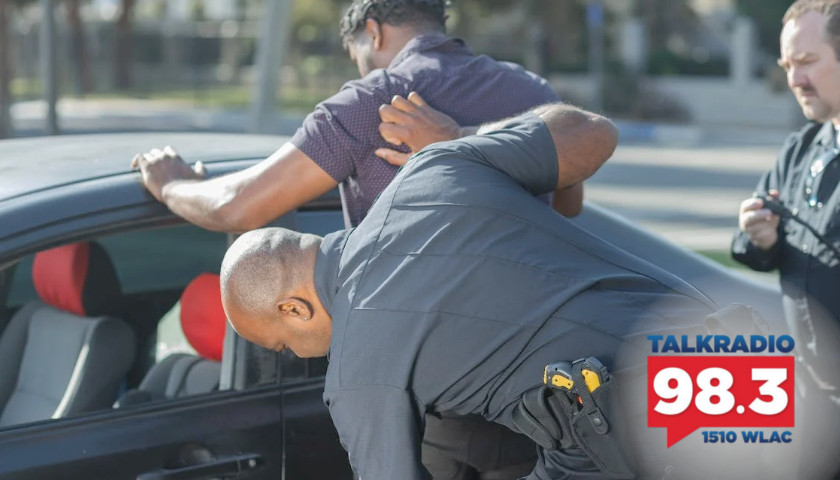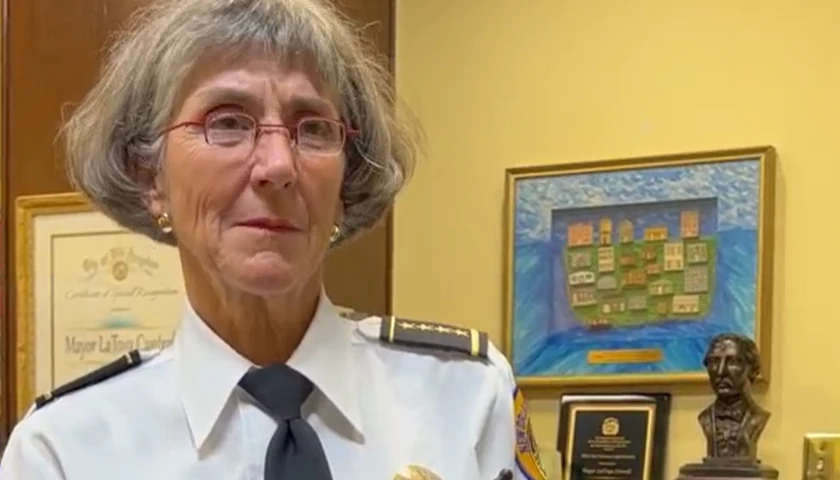Live from Music Row, Wednesday morning on The Tennessee Star Report with Michael Patrick Leahy – broadcast on Nashville’s Talk Radio 98.3 and 1510 WLAC weekdays from 5:00 a.m. to 8:00 a.m. – host Leahy welcomed all-star panelist Carol Swain in studio to talk about the state of police departments and comment upon the Memphis Police Department’s response to questions about officers personal relations to Tyre Nichols.
Leahy: In studio, our very good friend for many years, all-star panelist Carol Swain on the phone right now is Eric, a former police officer here in Nashville who has a question for Carol. Eric, good morning.
Caller Eric: Hey. Good morning! Miss Carol, I’m so thankful for you. I just wanted to tell you, I think you do need to be in politics, but you answer your own call. I could go on for hours about the police department. There are many good men and women in that department, but the problem is they’re not allowing the good ones to be in leadership. Let me give you a prime example.
When they had the riots and different disturbances all over, and the people were laying in the street, well, I looked at a friend of mine who I went through the academy with, and she’s out there handing them bottles of water instead of arresting them.
Swain: I remember when they were really, the other chief gave them hot chocolate and cookies. (Laughs)
Eric: Yes, but they tied the hands of the police for years. Twenty-something years ago, when I was on, they gave us these profiling reports. I worked in the inner city, and it was 99.9 percent of the African American community. And then, at every traffic stop, I have to fill out a racial profiling report. Well, who do you think is going to be on it? So they instantly turned me into a racist police officer.
Leahy: Eric, how long did you serve as a police officer, and where did you serve?
Eric: Six years in Nashville, Tennessee.
Leahy: And it sounds like it was six unpleasant years for you.
Eric: The first couple of years were good, and then when Anderson took over, and it just became the trend when these people complain about the officers, it’s cheaper to fire the police officers because these guys are educated, and they’ll go on and find other jobs.
It’s cheaper to just fire them or put them on the Green Mile and make them quit than it is to tell the citizens, hey, we’re going to back our police officers here. Now, of course, you get a few bad apples, just like in Memphis. That’s always happened. But I didn’t see all of that when I was on.
Swain: It is my understanding that in Memphis, they had lowered standards to hire police officers. And so this DEI push often results in the hiring of people that really shouldn’t be in those positions.
Eric: Yes, that was nothing but a gang beating without any supervision. That should have never happened. And we used to have good supervision. We didn’t really need our sergeants that much. The guys kind of took care of that.
If a guy had a bad day and he felt like he was a little aggressive with somebody, you dealt with it on one on one. But then, when I left, there were more complaints of officer against officers than there was civilian against officer.
Leahy: Did you continue in law enforcement after your six years as a Nashville police officer?
Eric: No. Years later, I did a little stint signing warrants for a judge in the community I live. But, no, I completely got out. I vested it five years, got my retired little 14 percent coming, and I got out.
And I pray for those men and women every day, especially now, that are trying to do this job with their hands tied. We need some good, solid, conservative leadership in our police departments.
There’s a picture that went around on the internet of a little child sitting at a desk, and the parents and the school teacher are sitting there fussing each other, and the child is the one that did wrong, but nobody’s even fussing at the child. That’s what’s happening here in society. Everybodys wanting to fuss at the police.
Leahy: Thank you so much for your call, Eric, and really appreciate your listening to The Tennessee Star Report.
Swain: Thank you. I appreciate your support.
Leahy: Carol, I want to get your reaction to a story that we broke last night at The Tennessee Star. There are all sorts of rumors floating around Memphis, and we actually opposed a question with these rumors to the Memphis Police Department last night, and they gave us an answer.
So let me tell you the story. It’s one of our lead stories at The Tennessee Star. Tennesseestar.com. Here’s what we asked the Memphis Police Department public information officer, Karen Rudolph, and then we’ll tell you exactly what she told us. So we posed these two questions.
One, multiple sources in Memphis tell us that one of the five former Memphis police officers charged with second-degree murder in the beating death of Tyre Nichols targeted Mr. Nichols for a beating because Mr. Nichols was in a personal relationship with the officer’s, current or former significant other.
Can you confirm or deny this report? And then secondly, multiple sources in Memphis tell us that one or more of the five former Memphis police officers were affiliated with the Vice Lord’s gang. Can you confirm or deny this report?
This is the response we got from Memphis Police Department public information officer major Karen Rudolph. “There is no evidence that indicates that either of these claims is true.” So that was what they told us.
Now, to me, Carol, that sounds a little bit like a very carefully parsed denial, but you’ve seen a lot of these things before. What is your reaction to that comment from the Memphis Police Department?
Swain: I agree with Eric that it seemed like a gangland beating and that he may well have been targeted. And I find it very interesting that we only heard about this case in the last week or so, and it took place some time ago, and it was a black-on-black crime as far as I’m concerned.
Leahy: The five former police officers who’ve been charged with second-degree murder were all black. There was a sixth officer who’s been relieved of duty but not charged. He was the only white guy.
Swain: They had to bring a white guy in it. (Laughs)
Leahy: Preston Hemphill. He was there. The body cam that came from the very first stop was from Preston Hemhill. But I haven’t seen any body cam video from any of the other officers. PS. The Memphis Police Department is now withholding the full array of body cam until after the investigation. This does not sound like a good idea to me. Your thoughts?
Swain: They need to release the body cam. And if you look at the evidence about police brutality, black officers are more violent against black people. And I think that this DEI push where they are lowering standards for diversity, that’s not making the streets better for anyone.
Listen to today’s show highlights, including this interview:
– – –
Tune in weekdays from 5:00 – 8:00 a.m. to The Tennessee Star Report with Michael Patrick Leahy on Talk Radio 98.3 FM WLAC 1510. Listen online at iHeart Radio.





